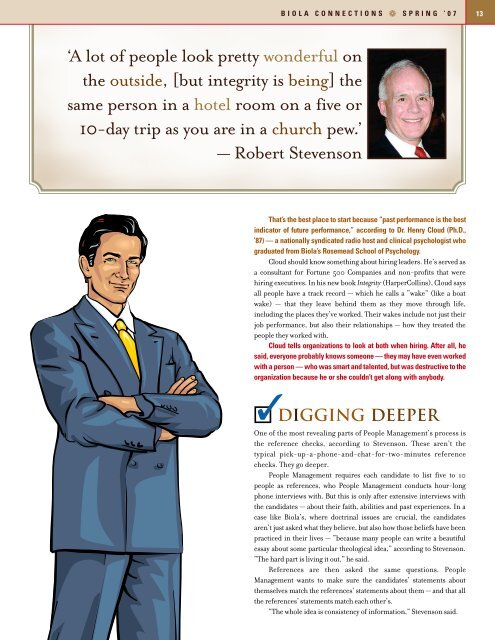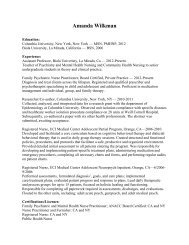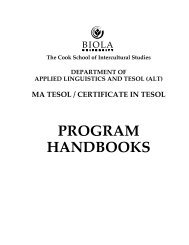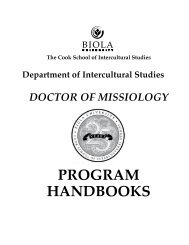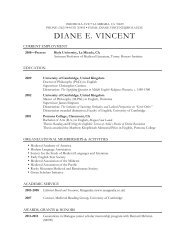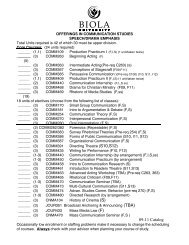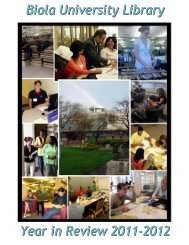Dawkins' God Delusion Divorced American ... - Biola University
Dawkins' God Delusion Divorced American ... - Biola University
Dawkins' God Delusion Divorced American ... - Biola University
Create successful ePaper yourself
Turn your PDF publications into a flip-book with our unique Google optimized e-Paper software.
‘A lot of people look pretty wonderful on<br />
the outside, [but integrity is being] the<br />
same person in a hotel room on a five or<br />
10-day trip as you are in a church pew.’<br />
— Robert Stevenson<br />
BIOLA CONNECTIONS ❁ SPRING ’07 13<br />
That’s the best place to start because “past performance is the best<br />
indicator of future performance,” according to Dr. Henry Cloud (Ph.D.,<br />
’87) — a nationally syndicated radio host and clinical psychologist who<br />
graduated from <strong>Biola</strong>’s Rosemead School of Psychology.<br />
Cloud should know something about hiring leaders. He’s served as<br />
a consultant for Fortune 500 Companies and non-profits that were<br />
hiring executives. In his new book Integrity (HarperCollins), Cloud says<br />
all people have a track record — which he calls a “wake” (like a boat<br />
wake) — that they leave behind them as they move through life,<br />
including the places they’ve worked. Their wakes include not just their<br />
job performance, but also their relationships — how they treated the<br />
people they worked with.<br />
Cloud tells organizations to look at both when hiring. After all, he<br />
said, everyone probably knows someone — they may have even worked<br />
with a person — who was smart and talented, but was destructive to the<br />
organization because he or she couldn’t get along with anybody.<br />
✓<br />
Digging Deeper<br />
One of the most revealing parts of People Management’s process is<br />
the reference checks, according to Stevenson. These aren’t the<br />
typical pick-up-a-phone-and-chat-for-two-minutes reference<br />
checks. They go deeper.<br />
People Management requires each candidate to list five to 10<br />
people as references, who People Management conducts hour-long<br />
phone interviews with. But this is only after extensive interviews with<br />
the candidates — about their faith, abilities and past experiences. In a<br />
case like <strong>Biola</strong>’s, where doctrinal issues are crucial, the candidates<br />
aren’t just asked what they believe, but also how those beliefs have been<br />
practiced in their lives — “because many people can write a beautiful<br />
essay about some particular theological idea,” according to Stevenson.<br />
“The hard part is living it out,” he said.<br />
References are then asked the same questions. People<br />
Management wants to make sure the candidates’ statements about<br />
themselves match the references’ statements about them — and that all<br />
the references’ statements match each other’s.<br />
“The whole idea is consistency of information,” Stevenson said.


